Transition
Ruaha National Park and South Tanzania
Tanzania
December 8 - 14, 2019
The poorest countries in Africa have denser mobile network coverage than Germany, one of the largest economies in the world. Many Africans walk and drive with a mobile in their hand. Along the way we are often easily accessible. A local SIM card provides internet. When we have left the last country with an Apple store, Zambia, the battery of an old iPhone explodes, which serves as a hotspot for our cell phones.
Range
No Apple mobile can be found in Tanzania. The owner of a street stall in the city of Iringa can install a new battery. The right battery is delivered super fast by a fast-running courier. We buy the SIM card at Vodacom. A case full of helpful male employees and one woman around thirty. She is responsible for the registration. A spider in the web. Figuratively and literally. She controls her colleagues with blinking fingers and the piercing index finger. It resembles the customs officer of Tanzania in attitude and behavior. A thirties and a woman too
Shans
The entrance in Tanzania proceeds as in Malawi. Here too, the road tax must be paid in local money. It is Sunday. The bank closed. The illegal trade offers a solution. While I do business on the street, Onno has the shawl of a female customs officer. The haughty lady, carefully dressed and cut down, asks Onno: "Have you ever considered an African woman?" Already provided with a woman, he explains that polygamy is not permitted in the Netherlands. The black lady is not satisfied with that. She wants to know her chances with a white man: "Before your wife, did you consider an African then?" Onno replies, not romantically but honestly and directly, "No, never." With a road tax certificate, a stamped carnet, and one woman, Onno leaves the office. We can enter Tanzania together.
Tea plantations
We drive via the Tazam Highway towards Noorden. We will ignore the alternative off-road route. In the rainy season it changes into an endless mud bath. Splattering in sucking wet clay is not our hobby. The landscape of South Tanzania surprises us. Mountainous area with beautiful, green nature. Interspersed with tea plantations. Many villages with shops and stalls along the road. There is various where to buy. For example a colorful collection of funeral coffins. On the road Tuktuks and mopeds ride everything. The new driving SUVs are nine against ten from a non-governmental organization (NGO). The Tanzanians, dressed in down jackets, walk in a drier rain. With an outside temperature of 20 degrees it is not really cold. We have a Déjà vu. The view through the car windscreen resembles the Northern province of Sikkim in India, as well as Cameron Highlands in Malaysia. We see no tourists and no campsites. We sleep in hotels.
Charity organizations
In one of the hotels, Iringa Lutheran Center, we meet a black woman, Maria, who works for a part of United Nations in the dining room. Her organization has a mission: to achieve equality for women. Especially in the Kilimanjaro region, women are subordinate to men. Maria drives around with a colleague, a Western representative of their organization who is visiting Tanzania. She dropped her colleague at the best hotel in town. Substantially exceeding the daily budget of the Tanzanian branch of the NGO. That is why Maria has taken a room in our hotel and eats it alone. She talks about her work and the working visit of her international colleague whom she consistently calls 'madame'. Equality between the women themselves in the same organization apparently has not yet been achieved either. There are many opinions about the contribution of charity organizations in Africa. An opinion that we regularly hear on this continent is: "Giving keeps people poor." By receiving, Africans do not learn to take care of themselves, so they remain poor.
How then?
It is not easy for Westerners to be of importance to Africans. One afternoon we experienced this ourselves, despite all good intentions. We stay in a B&B with an Italian restaurant, located in an old monastery in Iringa. A large truck drives onto the gravel area and stops half on the grass. When the large amount of water bottles has been delivered, the large wheels sink further into the grass when reversing. The more persistently the driver continues to accelerate, the deeper the truck will disappear into the ground. A tractor is arranged, which is strong enough to pull the truck out. That works quite well indeed. When I check again after 10 minutes, the tractor is now in front of the truck. Half on the grass, half in the flowerbed. The Italian owner makes frantic attempts to give instructions, which are not followed. "Because I'm a woman," she explains to me. Her garden has since been plowed. What a mess. It seems to me that Onno should take the lead. He has a lot of experience in the field. The owner agrees with me. Onno demonstrates how the planks and stones should be placed. But when he turns around, the stubborn driver removes everything and throws pebbles into the big holes. Pieter has now joined the many viewers. Also Dutchman and guest of the B&B. He has been doing business in Tanzania for 25 years. His experience is in asking questions and asking questions to guide the Tanzanian to the solution. That takes its time. At 19.00 p.m. we decide to allow the Africans their own learning process. We're going to order pizza. When we put the spoon in the empty Tiramisu glass and sip the homemade Limocello, we finally hear the truck drive away. Leaving the garden in havoc. And we have learned a wise lesson; to coach the Africans towards a solution with great patience.
Ruaha or not?
As if we are peeling the leaves off a flower; to Ruaha National Park, not to Ruaha, indeed…. . We weigh things up. The 100 kilometer-long access road is cursed by fellow travelers. Our favorite animals live there: lions, leopards and wild dogs. Tanzania's second park may have become too wet, not spotting animals anymore. We are in the neighborhood now. A day in the park is disproportionately expensive with your own car. Total admission price worth half a year of Tanzanian's minimum wage. The decisive argument ultimately comes from a completely different angle.
Passion for lions
The recent Volkskrant article 'How wildlife biologist Amy Dickman tries to make the lion beloved' that my girlfriend Angelique e-mails, brings us to different thoughts; 'The idea that there is a wild species in Africa that you can kill and eat with one blow deserves to be preserved. I have felt that passion. ", Says Amy about her work in the Ruaha NP. And she wants to safeguard that passion for posterity.
I understand exactly what the game biologist means. During our journey we slept a number of times alongside free-roaming lions, without a fence separating us. A roar of a lion that sounds like an amp from a pop concert releases something in me. A combination of intimate awe and pure beauty. It's about living and surviving. For humans and the lion. An extra dimension of our existence, which I did not know yet, is added. As if 'Keeping Life' gets a new floor.
Ruaha anyway
The decision has been made. We visit the Ruaha park. With our entrance fees to the park we contribute to the maintenance of the lion and other wild animals. We look forward to seeing the predators in this park. We defy the poor access road for this. The washboard, caused by the racing heavy trucks and buses, has high tops that are far apart. Normally a car can drive at the right speed over the washboard tops, but here the wheels disappear in every hole. It drives us crazy. Along the way we see a lot of Maasai. Tough men with their bodies wrapped in checkered cloths. Proudly leaning against a long stick that reinforces their image of fearless warrior. They are certainly not poor, their herd often has the value of three land robbers. We finally reach the entrance gate. The park is beautifully green thanks to the rainy season. Very wet too. Nature is varied. Baobab trees with leaves. Palm trees wave at the river. Lots of fresh grass for the grazers and juicy leaves for the herd of elephants.
Stuck in the mud
Have not seen a trace of feline animals. We choose the small paths in a remote area. Occasionally driving through wet puddles. Onno uses both the differential and the low gear. Then we suddenly stand still in a large lake. Stuck in the mud. The car can no longer move forward. Then backwards. That also fails. Again ahead, the wheels dig deeper. We stare at the 25 meter tree in front of us, wondering how long our winch is. And where is the 'manual for dummies' of the brand new and never before used winch? Faced with all the work, Onno kicks the gas in firmly, the car in reverse. It works, we are coming loose. If the rangers we encounter in the game drive cars summarize their 'mock catch' with: 'It's bad', we accept that the catch of a fish by a crocodile is the highlight of the park visit. We hope to meet many lions on a possible next visit to the Ruaha National Park.
We go on. Through the beautiful and varied landscape to northern Tanzania, on to the Ngorogoro crater and the Serengeti.
Leave a comment
Join the conversation?Feel free to contribute!


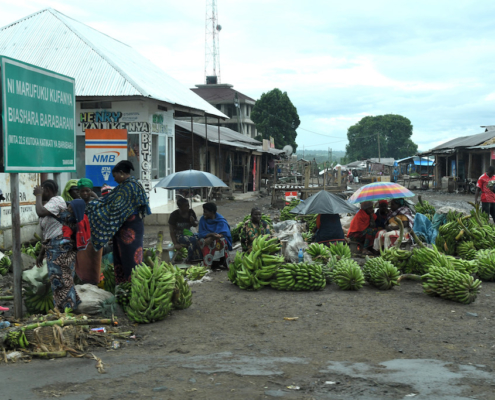
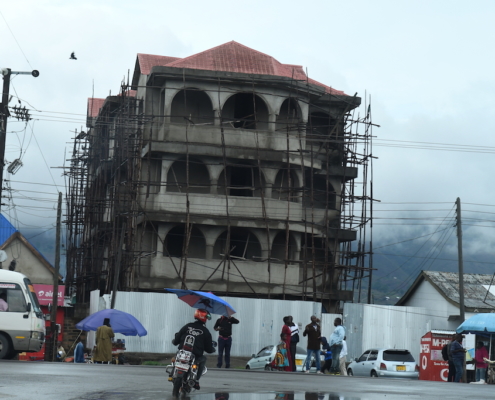
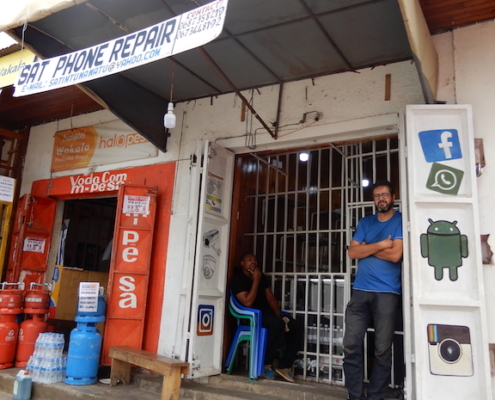

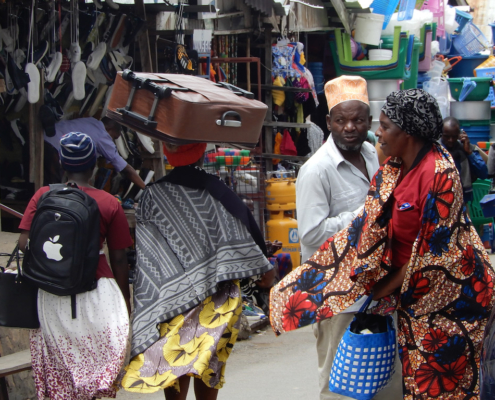
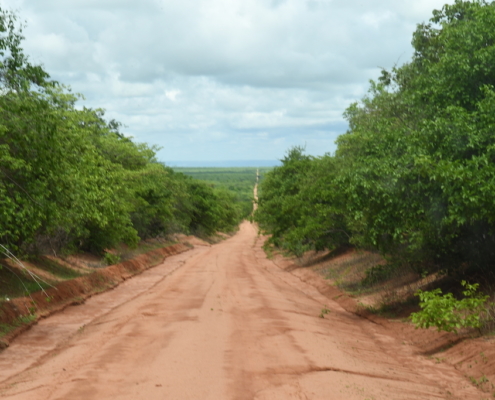
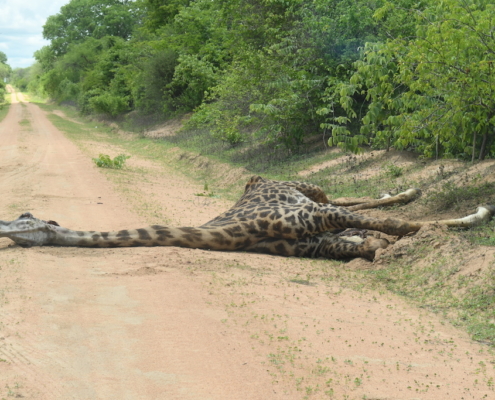
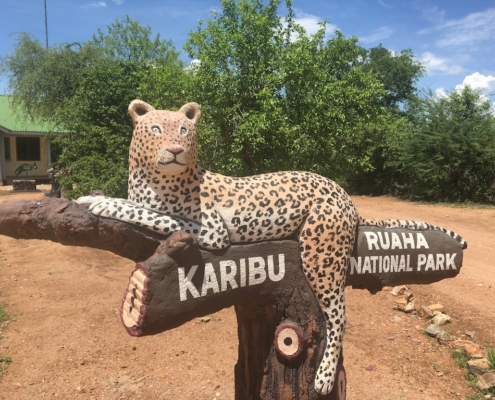
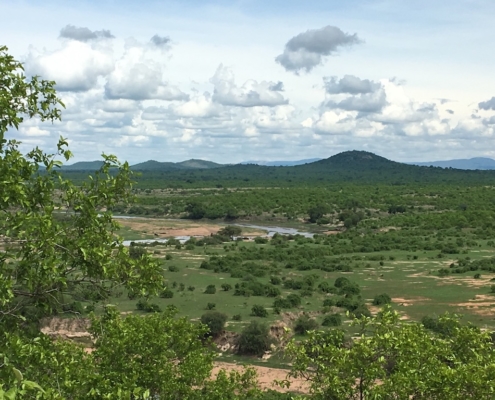
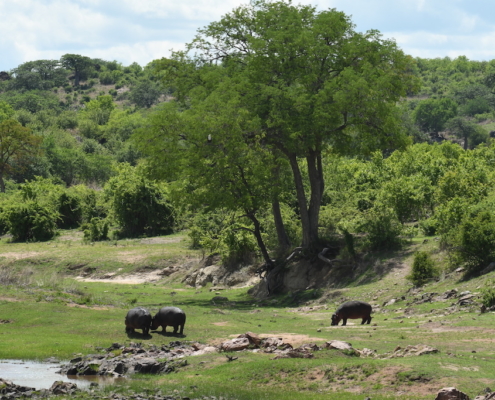
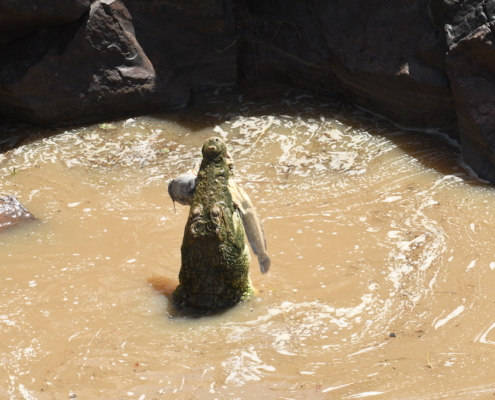
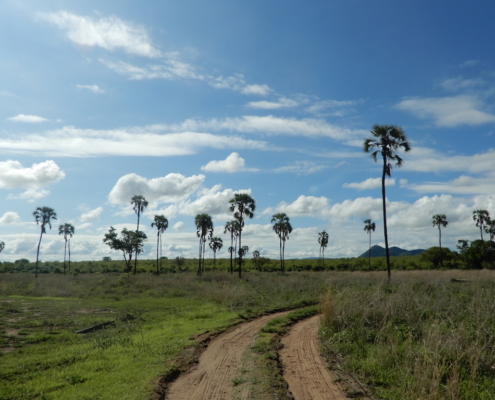
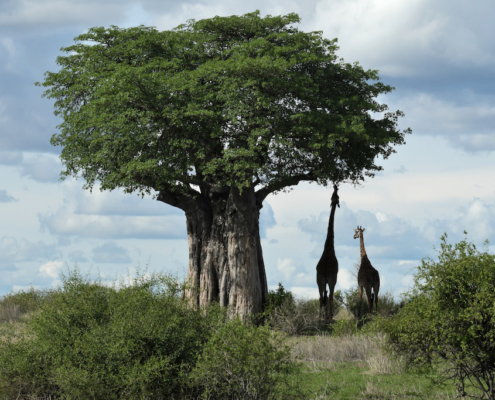
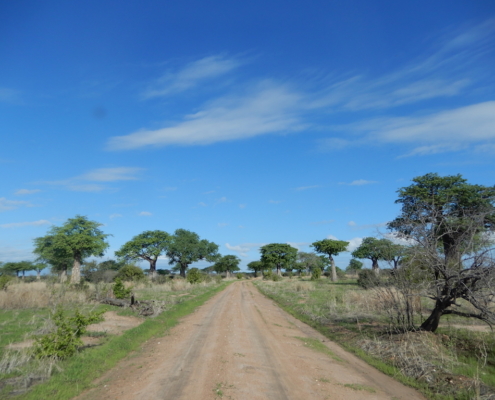
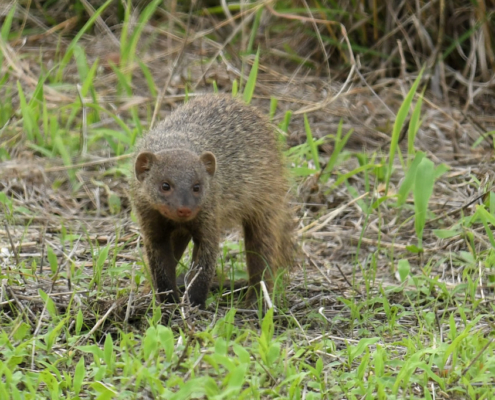

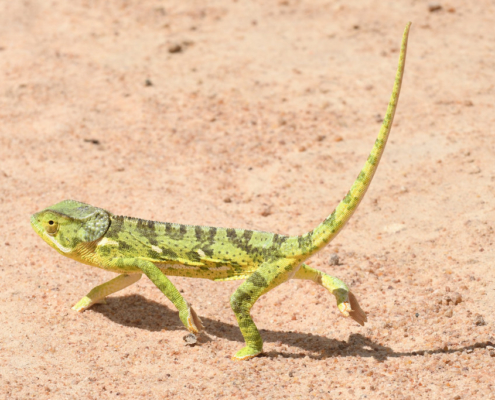

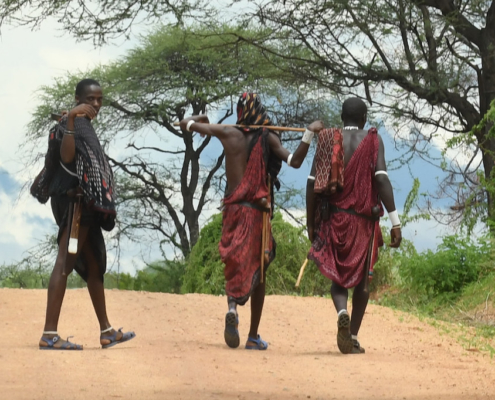
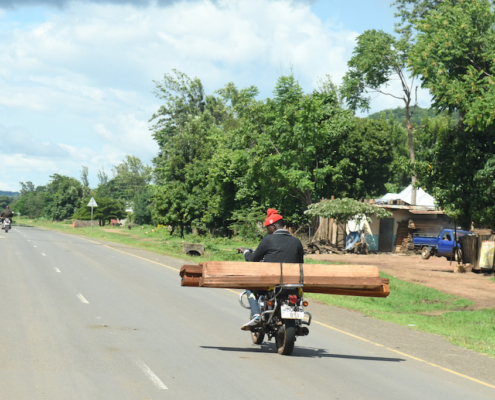
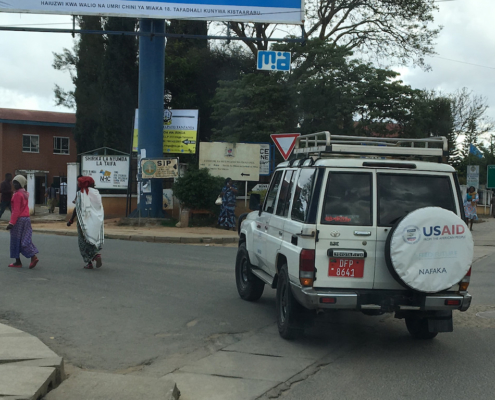
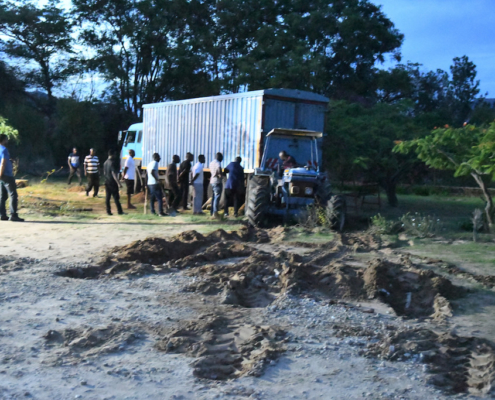

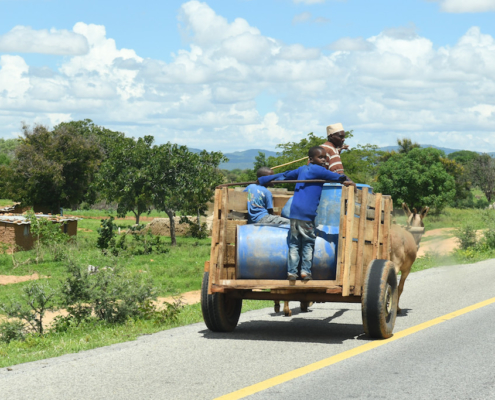
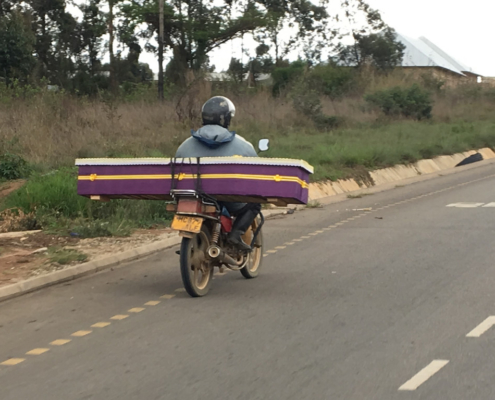

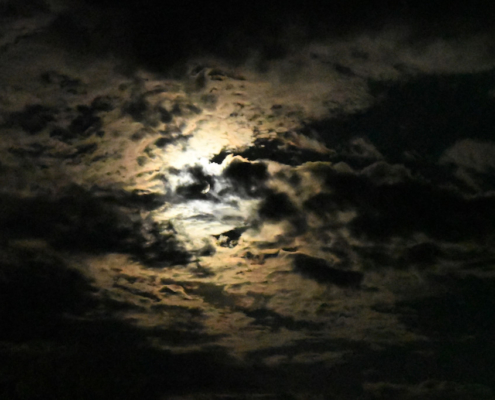


Nice trip! Nice to meet you in Iringa. See you next time.
Safe travels and lots of fun and adventure… Greetings Pieter
Pieter, it was very educational to get a glimpse into African business with your expat eyes. And the meals were very enjoyable. Good luck here in Tanzania.
It was a while waiting for news from you but then you also get something!
Great story again and all kinds of memories come to mind when hearing city names and parks.
Very recognizable too, currently also a beautiful green sea but no 'big game'.
I'm curious about the crater, which we unfortunately had to skip. Enjoy !
At Iringa and the surrounding area we often had to think about you. Extra careful not to be hit, as far as possible here;).
Ngorongoro was fantastic, see the new blog!
Greetings
Particularly photogenic, that is Tanzania
We were surprised too! Something different from all those animals 🙂